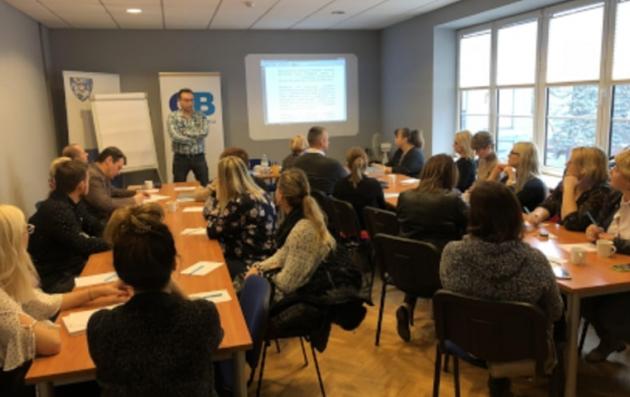Solutions offered by the good practice
Koszalin is a city in northwest Poland located 12 km south of the Baltic Sea coast. The three most important sectors of the economy are industry, construction and tourism.
Koszalin had already worked with Preston (UK) as a partner in the 2015-2018 URBACT network ‘Procure’, in which it had sought to understand if and how procurement could really be used to create jobs, support SMEs, and address environmental challenges - and whether procurement bureaucracy could really be reduced.
As a result, the city already had a local Integrated Action Plan (IAP) to improve its approaches to procurement and was convinced of the power of procurement to prompt both local economic change and pursue sustainability objectives.
In 2018, Koszalin was looking for help to implement their ambitious new IAP, and particularly objectives around understanding more effectively their procurement spending, encouraging local SMEs to bid for procurement opportunities with Koszalin City Council, including social and environmental considerations in decision-making; and influencing the procurement behaviour of other anchor institutions”.
Sustainable and integrated urban approach
The approach developed by Preston for procurement addressed local (economic), social and environmental considerations, while seeking to promote local products, social enterprises, local SMEs and environmentally friendly products. At the same time integration is key within municipalities and in the cites to ensure that these criteria are correctly identified and addressed.
Participatory approach
Through their URBACT Local Group (ULG), Koszalin City Council transferred the spend analysis tool to anchor institutions within the city, such as the Regional Hospital, Technical University of Koszalin, and Koszalin District Administration. This enabled them to explore alongside the city authorities how much they spend, and where that money goes geographically, sectorally and in business type terms.
What difference has it made
Across all procurers within the city, they collectively identified an annual spend of over EUR 100 million making procurement a significant contributor to Gross Domestic Product. The City Council was pleasantly surprised by the extent to which procurement spend was already spent with organisations in the Koszalin Functional Urban Area (83%) and SMEs (91%).
Addressing the other side of the procurement dynamic, Koszalin strengthened relations with business representative bodies and SMEs. They surveyed business chambers to identify challenges and how they could be addressed to support SME participation in procurement.
Transferring the practice
The city adopted Preston’s spend analysis tool and achieved the core objective of their previous URBACT network and IAP: to understand the scale of procurement spend in the city and to use this evidence to shape wider procurement practice.
Koszalin has presented their procurement activities and results at events organised by the Polish National URBACT Point to showcase their example as a city that has realised real incremental change. They also shared their learning bilaterally with the Gdansk-Gdynia-Sopot Metropolitan Area and they feature as a case study in URBACT’s strategic procurement training programme.
The involvement in Procure and Making Spend Matter has been “incredibly beneficial” for procurement in Koszalin and the city representatives are convinced that this is only the beginning of a new journey around procurement. Indeed, they recognise that progressive procurement is integral to the future economic, social and environmental destiny of Koszalin.

